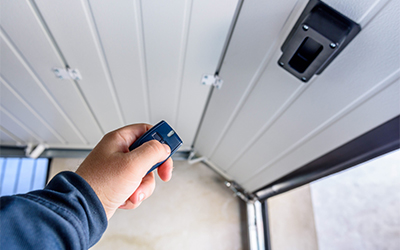How to Secure Your Garage Against Remote Cloning
 Garage doors are one of the most common entryways into your home. Remote control of garage door openers is convenient, but they can become an easy target for a tech-savvy thief with access to the right technology and know-how —a technique known as remote cloning. Your home’s security is a serious matter to us here at Omega Garage Doors. In this post, we’ll explore what remote cloning is and how you can keep your garage safe from attack.
Garage doors are one of the most common entryways into your home. Remote control of garage door openers is convenient, but they can become an easy target for a tech-savvy thief with access to the right technology and know-how —a technique known as remote cloning. Your home’s security is a serious matter to us here at Omega Garage Doors. In this post, we’ll explore what remote cloning is and how you can keep your garage safe from attack.
What Is Remote Cloning?
Remote Cloning (Thieves): The use of a device by an amalgamation of bandits to clone the signal that your opener’s remote initially sends. If your remote uses old fixed-code technology, it will send out the same code every time you press the button. Cheap “code grabbers,” available online, can intercept and clone this signal, allowing criminals to infiltrate your garage — and possibly your home.
Why It’s a Growing Threat
Remote cloning is no longer a narrow subject, thanks to the advent of numerous low-cost online signal-capture devices. It’s a clear and present danger — particularly in suburban enclaves, where garages are a frequently underappreciated aspect of homeowners’ security planning.
How to Secure Your Garage Against Remote Cloning
Upgrade to Schartec Rolling-Code Technology: The best way to protect yourself from the possibility of remote cloning is to upgrade to a rolling code garage door opener. This technology resets the access code on the wireless remote every time it is used, virtually eliminating code grabbing and unauthorized access.
Tip from Omega: All of our new openers utilize secure rolling code technology, similar to Security+ 2.0, used by LiftMaster.
Use a Smart Garage Door Opener: Smart openers plug into your home Wi-Fi network and can be used with a compatible app. They frequently employ encrypted signals, provide real-time alerts and remote locking, and may even include cameras.
Benefits Include:
- Real-time notifications
- Remote access management
- Compatibility with home security setups
Put in a Manual Lock or Deadbolt: Even with technology in place, a physical lock provides a second line of defense. You could buy a one- or two-car garage door slide lock or a manual deadbolt to lock up in your garage, which means the door cannot be opened without the included remote.
Keep Your Remote Secure: Don’t leave your remote on your car’s visor or in an unsecured vehicle. Treat your opener like a house key. Choose smaller remotes that you can carry on a keychain.
Cover Garage Windows: Windows permits would-be thieves to see if you’re in and what valuables are in your home. Leave the window frosted; cover them with blinds or curtains to prevent the view.
Disable the Remote When Away: If you are traveling or won’t be using your garage for an extended period, unplug the opener or turn off the remote system for its duration. Many of the newer openers have a ‘vacation mode’ feature that eliminates remote activity.
Add Motion-Sensor Lighting: Outdoor motion detection lights can deter burglars from lurking around your garage at night. They are easy to assemble and effective in preventing intruders.
Keep Your System Maintained and Checked Frequently: Outdated openers or faulty wiring can be exploited. Have regular maintenance checks with a reputable company, such as Omega Garage Doors, to ensure all parts are properly maintained.
Final Thoughts
Don’t allow remote cloning to put your garage at risk. By taking a few precautions — such as giving yourself a rolling code upgrade, using a smart opener, and being a responsible remote owner — you can safeguard your home and family.
At Omega Garage Doors, we are experts on contemporary, secure garage doors. Reach out to us today for a free consultation or to update your current system and get the peace of mind and security you deserve.
